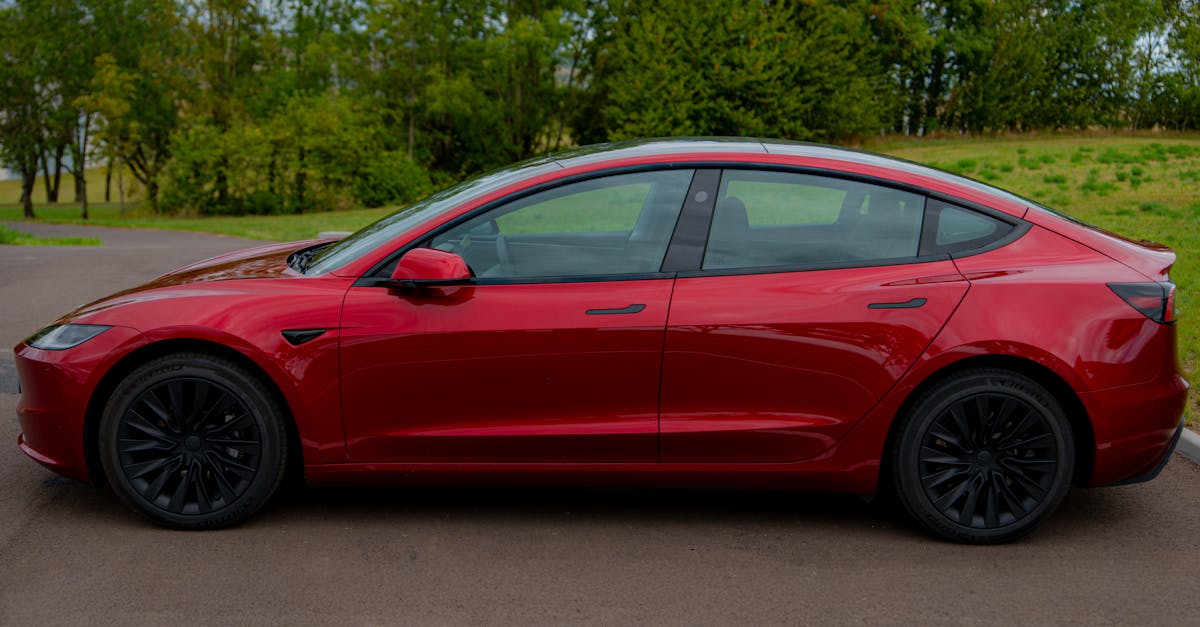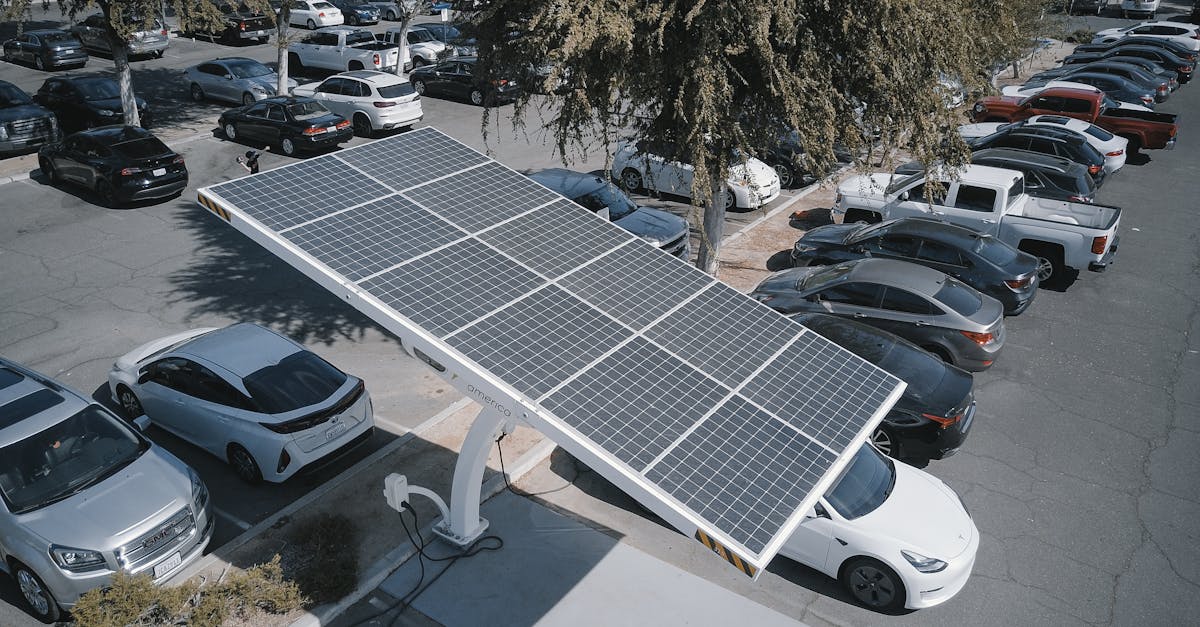Electric Vehicles Surge Why 2025 Could Be The Year Gas Cars Fade Away
Introduction to the Electric Vehicle Revolution
The automotive industry is experiencing a transformative shift as electric vehicles (EVs) surge in popularity and technological sophistication. With growing environmental concerns, advancements in battery technology, and evolving consumer preferences, 2025 is poised to be the year EVs potentially eclipse gas-powered cars. Key players in the industry are investing heavily in electric technology, signaling a looming end to the dominance of traditional combustion engines. How will this transition unfold, and what makes 2025 a pivotal year? As automakers and governments around the globe pivot towards sustainability, understanding the forces driving this change is crucial.
Advertisement
The Technological Leap in EVs
Recent breakthroughs in battery efficiency and charging infrastructure are pivotal accelerants in the adoption of electric vehicles. Innovations in solid-state batteries promise longer life spans and faster charging times, addressing one of the most significant barriers to EV adoption. Meanwhile, rapid advancements in vehicle-to-grid technology allow EVs to serve as mobile energy storage, providing unique capabilities unknown to traditional car models. Collectively, these developments dramatically improve the practicality and appeal of electric vehicles, fostering consumer confidence and accelerating market penetration.

Antonio Mistretta/Pexels
Advertisement
Environmental Urgency and Policy Initiatives
The pressing reality of climate change renders the adoption of electric vehicles more than just a consumer trend—it's an environmental imperative. Many nations are enacting stringent emissions regulations, incentivizing zero-emission vehicles while imposing stricter norms on gas-powered cars. Regions such as the EU and China are undertaking ambitious targets for electrification, while major cities implement low-emission zones, pushing automakers to innovate. These policies not only promote cleaner air but also boost the competitive edge of EVs, positioning them as the future of transportation.
Advertisement
The Economical Edge of Going Electric
Beyond environmental benefits, electric vehicles offer substantial economic advantages over time. Lower maintenance costs—stemming from fewer moving parts—and reduced fuel expenses provide compelling financial incentives for consumers. While the initial investment in an EV may be higher, decreased long-term expenses often result in net savings over the vehicle's lifespan. Government incentives further sweeten the deal, with tax breaks and rebates making EV purchases more financially accessible. As battery prices continue to drop, the economic appeal of EVs is expected to grow exponentially by 2025.
Advertisement
Charging Infrastructure Expansion
For electric vehicles to supersede gas cars effectively, robust and widespread charging infrastructure is crucial. Fortunately, global efforts to expand and optimize charging networks are underway, catalyzing the transition. Public and private sectors are collaborating to ensure that charging stations are as ubiquitous as traditional fuel stations, alleviating range anxiety. By 2025, advancements in ultra-fast charging technology could make it possible to replenish an EV's battery in minutes rather than hours, further narrowing the convenience gap between electric and gasoline vehicles.
Advertisement
Rising Consumer Interest and Behavioral Shifts
Consumer attitudes towards electric vehicles are evolving rapidly. With increased awareness of environmental issues and a growing preference for tech-savvy solutions, more drivers are considering the switch to electric. Automotive giants are responding by offering diverse EV models, accommodating varying needs and tastes. The appeal of "smart cars" with the latest digital features is enticing tech aficionados and younger drivers. As brand options expand and public perception shifts, experts predict a substantial increase in consumer transition from gas to electric vehicles by 2025.
Advertisement
The Industry's Race Towards Electrification
Automotive manufacturers are aggressively competing to stake their claim in the burgeoning electric vehicle market. Legacy automakers, alongside newcomers such as Tesla, are redefining their product lines to focus on EVs entirely. Billion-dollar investments are funneling into research, development, and production, often culminating in new models characterized by extended ranges and innovative designs. The race towards electrification isn't merely about staying competitive—it's about which company will lead as the industry norm pivots from gas to electric.
Advertisement
Global Economic Impacts of Vehicle Electrification
The shift towards electric vehicles is poised to reshape global economies, impacting industries far beyond automotive manufacturing. As petroleum demand declines, the oil industry may face significant restructuring while renewable energy sectors flourish. Nations abundant in lithium and other essential battery components might experience economic booms. Moreover, the logistics and energy supply chains will undergo transformations to accommodate electrified transport. These global shifts, reflective of a broader green revolution, reinforce the potential magnitude of the EV surge.
Advertisement
Challenges and Considerations in the Transition
Despite the optimistic outlook, transitioning from gas cars to EVs isn't without hurdles. The environmental and economic challenges of sourcing rare materials for batteries require sustainable strategies. Additionally, fluctuations in government support and varying levels of charging infrastructure development create inconsistencies worldwide. Consumers' range anxieties and resistance to change in automotive habits still need addressing. However, market momentum, technological advancements, and policy-driven incentives are expected to mitigate these challenges, making the transition ever-more feasible.
Advertisement
Conclusion: Embracing an Electric Future
The electric vehicle awakening reveals an exciting and transformative future for global transportation networks. As technology evolves, policies support, and consumer interest peaks, the prospect of electric vehicles becoming mainstream by 2025 seems increasingly likely. Environmental sustainability, economic advantages, and technological hubs drive this shift, prompting industries and societies to adapt. Despite challenges, the anticipated electric surge offers a path towards a more sustainable, cleaner, and economically sound transportation landscape, marking the beginning of the end for traditional gas cars as the dominators of the road.
Advertisement
